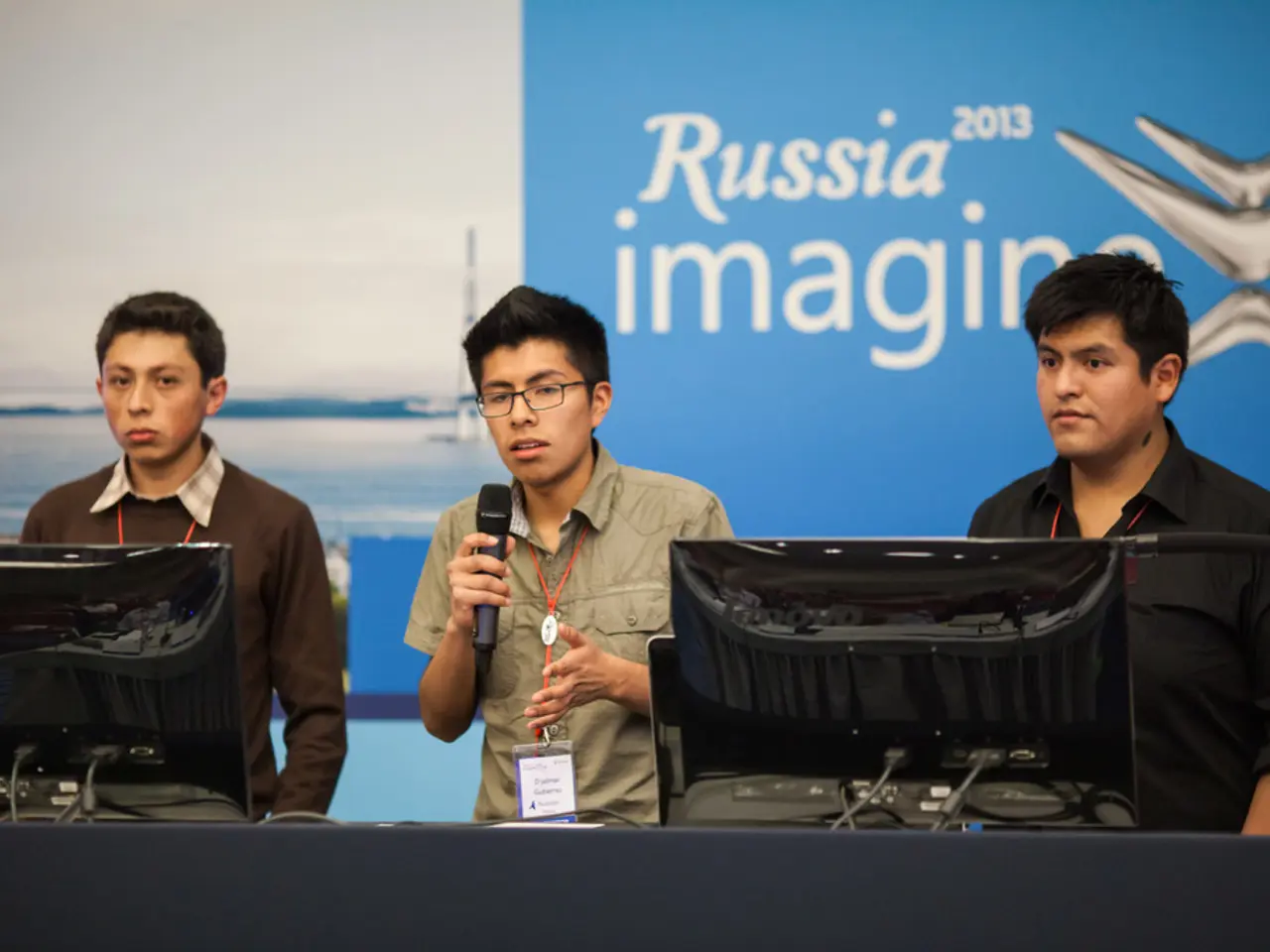Expert in Manipulating Political Videos Artificially
In the digital age, the role of Political Deepfake Specialists has become increasingly crucial as they navigate the complex world of manipulated media, particularly in the political sphere. These experts specialize in creating and analyzing deepfakes, a technology that manipulates audio and video content using advanced machine learning algorithms to create realistic videos or audio.
To evaluate the authenticity of political content, Political Deepfake Specialists must investigate the sources and origins of videos, and be knowledgeable about the role of Generative Adversarial Networks (GANs) and popular tools such as DeepFaceLab, FaceSwap, D-ID, HeyGen, Synthesia, Descript, and custom GAN models.
Recognizing deepfakes is another essential skill for Political Deepfake Specialists. They use techniques such as frame analysis, voice consistency checks, unnatural blinking, metadata inspection, and AI-powered detection software to detect deepfake videos.
However, the fight against deepfakes is not just about technology. Political Deepfake Specialists should understand the importance of engaging all relevant parties in dialogue, understanding each stakeholder's perspective on this issue, and finding ways for everyone involved to contribute towards mitigating this threat.
Educating the public about the impact of deepfakes in politics and promoting media literacy is crucial to preventing manipulated information dissemination. Several tools and technologies have been developed to recognize deepfakes, such as the Deepfake Detection Challenge.
Strategies and best practices for detecting and countering political deepfakes involve a multi-layered approach combining advanced technological detection, content context evaluation, human expertise, and regulatory measures.
Key strategies include technical AI-based forensic detection, liveness detection and anti-spoofing technologies, watermarking and provenance systems, contextual risk classification and human expertise, use of specialized deepfake detection tools, regulatory and legislative frameworks, and multi-level systemic approaches.
Political Deepfake Specialists may find career opportunities in cybersecurity firms, political consultancies, newsrooms, and AI companies that hire experts to identify and counter synthetic content. They must also research and develop better tools and technologies for detecting and preventing malicious actors from manipulating public discourse through digital means.
Moreover, Political Deepfake Specialists should be aware of the ethical implications of deepfake use, including disclosing synthetic content, using disclaimers, applying ethical guidelines, and avoiding deceptive or defamatory intent. They should also be aware of the various methods for using deepfakes ethically and legally in political marketing, such as rapid content creation, language localization, and creative strategy.
However, challenges remain. These include the detection of deepfakes, developing effective mitigation strategies, keeping up with technology, increasing awareness, and developing international regulations. Despite these challenges, the fight against political deepfakes is a collective effort that requires collaboration between platforms, governments, content creators, and fact-checkers for a safer and more truthful digital landscape.
References: [1] Chesney, R., Citron, D., & Gurulé, E. (2020). Deepfakes, Misinformation, and the Inflection Point for Regulation. Yale Law Journal, 129(6), 1638-1683. [2] Chung, K., & Kim, D. (2021). A Survey on Deepfake Detection Methods. IEEE Access, 9, 126628-126643. [3] Sekar, A., & Ravi, M. (2021). A Comprehensive Survey on Deepfake Detection Techniques. IEEE Access, 9, 76474-76493. [4] Cohen, W. (2019). Fact-Checking and the Challenge of Deepfakes. The Journal of Law, Media & Communications, 16(3), 401-419. [5] Zhou, T., Tang, X., & Liu, Y. (2017). Unsupervised Learning of Identity-Specific Face Attributes for Deepfake Detection. Proceedings of the IEEE Conference on Computer Vision and Pattern Recognition (CVPR), 7720-7728.
- Political Deepfake Specialists should familiarize themselves with the role of social media platforms in the dissemination of political deepfakes and work to establish partnerships with these companies to mitigate their impact.
- To combat the issue of disinformation spread through deepfakes, Political Deepfake Specialists must be knowledgeable about the latest advancements in technology, such as cybersecurity measures and AI-based detection tools, to effectively address this challenge.
- Understanding the impact of politics on general-news reporting is essential for Political Deepfake Specialists, as deepfakes often target current events and public figures to manipulate public opinion.
- By collaborating with journalists and editors, Political Deepfake Specialists can educate the public on the importance of media literacy and critical thinking in evaluating the authenticity of political content they encounter on social media and other platforms.




